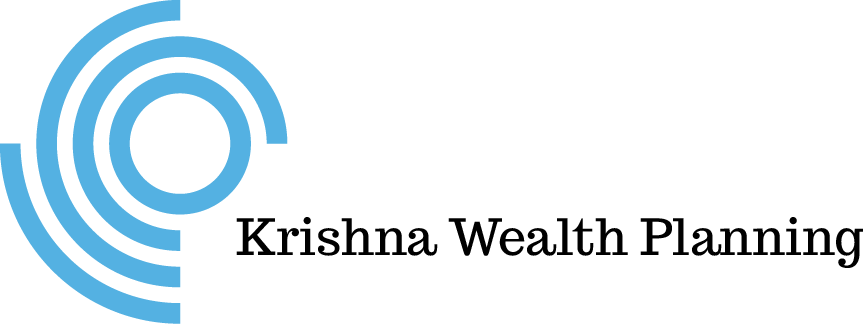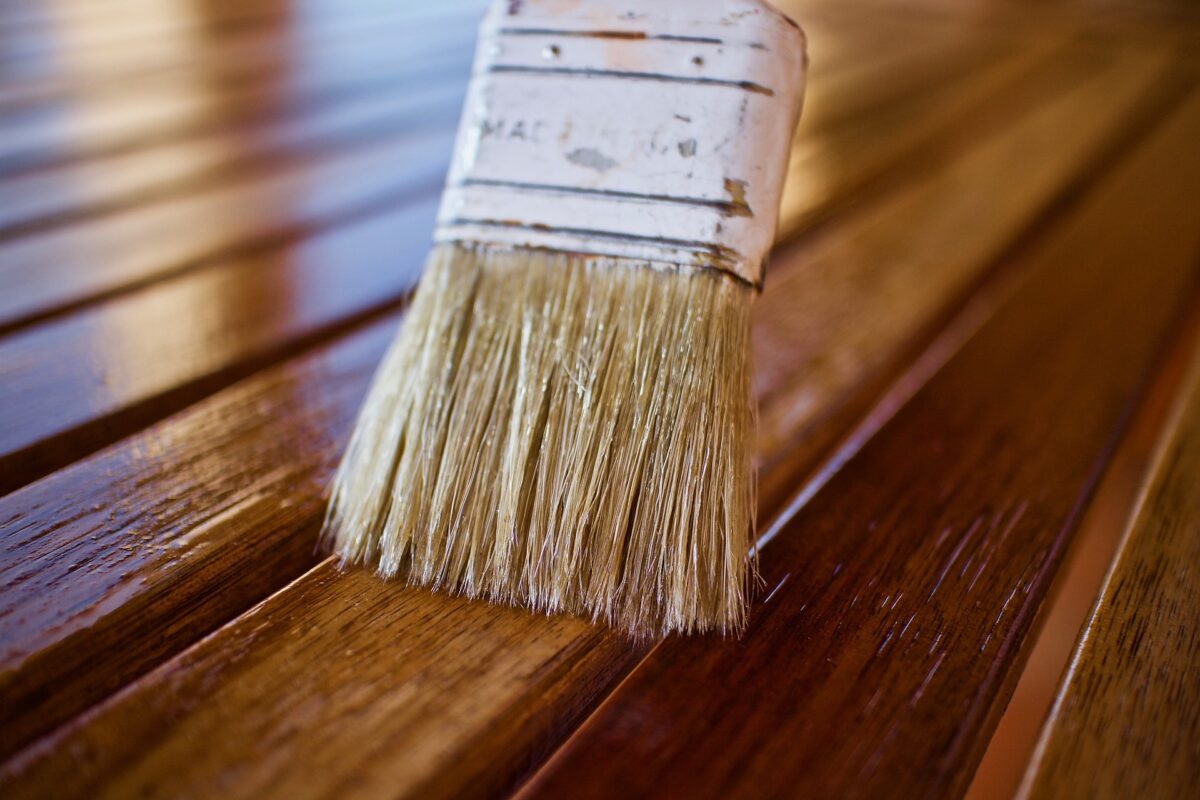9-Minute Read
“Sleep is the single most effective thing we can do to reset our brain and body health every day.”
- Matthew Walker
Markets have been volatile this year. But I wanted to talk to you today about sleep. As a financial planner, you might think this is a strange topic for me to discuss. But it is less odd when you realize that my life’s work centers around capital productivity.
When you hear the word capital, what comes to mind? You might think about financial capital such as your brokerage or retirement accounts. Perhaps you include your real estate and housing wealth.
Let’s expand the definition to include human capital. Assuming you’re still in the workforce, this is simply your ability to earn and produce economic value.
It should be little surprise that your ability to preserve and grow your human capital depends on you taking excellent care of your body and mind. What may be less obvious is that sleep is the foundation of your physical and mental health.
In this piece, I attempt to distill some of the key insights from the science of sleep. I’ll cover:
- The benefits of getting proper sleep and risks of not getting enough of it
- Five practical habits I’ve adopted to improve my own sleep
Benefits of Sleep and the Risks of Not Getting Enough
This piece is inspired by the book Why We Sleep by Matthew Walker, PhD. It was recommended by one of my close friends who is prominent practitioner of sleep medicine. If I had to make a short list of truly life changing books, this one would be on the list. I’ve always known I needed sleep to function, but I didn’t nearly have the appropriate appreciation. I feel it is my public service to share this message.
How much sleep do you need? This will vary for different people, so here’s a starting point. Use the CDC recommendation that adults get at least 7 hours of sleep nightly. There are so many benefits to getting quality sleep and so many risks of not getting enough sleep. Let’s briefly explore as I do my best to distill the wisdom from Walker’s research.
Benefits of Sleep
- Improved Memory – This includes restoring memories you thought you lost along with forgetting memories you don’t want. This does not only include fact-based memory but motor memory as well.
- Creativity – Don’t we all wish we were more creative? Sleep can help. Creativity is particularly tied to your dreaming state, also known as the stage of REM sleep.
- Recovery – Quality sleep result in speedier physical recovery from injuries or athletic performances.
- Concentration – Improving concentration is linked to consistently getting 8 hours of sleep nightly. In quality studies, notable impairments were found in people getting 6 hours of sleep. This could challenge the notion for those who say they are “getting by” on 6 hours of sleep or less.
- Learning and Decision-making – Like an overnight computer data backup, sleep helps transfer information from your hippocampus (short-term memory) to your cortex (long-term memory).
- And Much More – Other areas I noted include improved psychological health, metabolism, appetite control, cardiovascular health, and lower blood pressure.
I believe Walker puts it this way by reframing the question. Are there any biological functions NOT improved by sleep?
Risks of Not Getting Enough Sleep
I’ve been fortunate in my life and business to associate with high performing individuals. But I’ve learned to become less in awe of those achieving good results while claiming they are only sleeping 4 to 6 hours a night. Instead, I’ve become concerned for their long-term wellbeing.
Chronic sleep deprivation creates nearly opposite effects compared to benefits noted above. It has been shown to increase risks in areas including:
- Psychiatric Conditions – There’s a vast list here but they include anxiety, depression, bipolar disorder, and suicide.
- Alzheimer’s Disease – Those who’ve dealt with a family member with Alzheimer’s know how devasting it is. Notably this is one of the main reasons for higher long term care costs and the planning need to mitigate it. While we still may be far from a cure, studies have shown that lack of quality sleep is one of the causal risk factors.
- Diabetes, Weight Gain and Obesity – The hormones that control our hunger level are thrown off when sleep deprived. This leads to overeating, and it compromises impulse control in the brain.
- Drowsiness Related Fatalities – It turns out sleep deprivation can increase the risk of driving accidents at the same level of drunk driving. In some ways you could argue sleep deprivation is worse because it can result in “micro sleeps” while driving. That means periods with no reaction time on the road compared to simply slower response times when drunk.
- And Much More – Other risk areas I noted include chronic pain, a weakened immune system, cardiovascular disease, heart attacks, strokes, and certain forms of cancer.
A Financial Connection to Sleep
To make a loose connection back to the financial realm, I like this quote from Walker:
“In terms of memory, sleep is not like the bank. You cannot accumulate debt and hope to pay it off at later point in time.”
While I don’t have scientific data to back this, my own hypothesis would be that the mental and memory benefits that come with sleep should result in better work productivity which leads to higher lifetime income production. Put another way, I believe quality sleep and preserving your human capital are deeply intertwined.
Viewed this way, could sleep be the ultimate form of capital preservation?
Sleep in Perspective
There’s one downside to learning the benefits of sleep and the risks of not getting enough of it. If you currently struggle with sleep, it can lead to anxiety which can cause a further degradation of sleep, like a vicious cycle.
Considering all the demands you might face with family and your professional life, there can be challenges to solving your own sleep puzzle. You can try to do everything right behaviorally and still struggle to get good sleep. If you’re a new parent or have teenagers in the house, you can probably affirm that. Also, the quality of your sleep can change as you age. So, constant vigilance is needed to protect your sleep.
There are also commonly diagnosed disorders such as insomnia and sleep apnea. I’m not a doctor, so please consult one or seek help from a sleep specialist. And if you have one bad night of sleep, don’t beat yourself up about it. Control the variables you can. You might even try some of the strategies described next.
Five Tips to (Hopefully) Improve Your Sleep
It’s one thing to read about sleep. But it’s more powerful to put knowledge into action and develop better sleep habits. So here are five strategies where I’ve studied the underlying science and started implementing into my daily routine over the past year. These only require behavior changes and not medicine. While I feel I have much room to improve, these practices have collectively enhanced the quality of my sleep.
One – Get Morning Light Exposure
You have a remarkable internal biological clock. Some call it a circadian rhythm that helps you rise in the morning and sleep at night. It’s very close but not perfectly in sync to our 24-hour clock. One of the best ways to regulate your rhythm, and reset your internal clock, is to get exposure to sun light.
Andrew Huberman from the Stanford Lab has discussed this on his fantastic podcast. If possible, you should try to get sun light in the morning, directly into your eyes. Of course, you must be careful about truly staring at the sun. But the low angle sun light in the morning has just the right combination of light waves that keeps your rhythms in check. Ideally you would try to do this within the first two hours of waking up in the morning.
It’s not always possible to get direct sun light exposure for various reasons, including heavy clouds or poor weather. In that case, I use a lux lamp at my desk. There are plenty of options available on the market, but one I’ve found useful is produced by the company Circadian Optics.
The flip side of light exposure is to reduce or avoid it late at night before bed. This includes dimming overhead lights and limiting exposure to devices (phones, tablets, TV) in the hour before going to bed. Finally, while sleeping, I also try to sleep in as close to pitch black conditions as possible.
Two – Cool Your Sleep
Have you ever tried to sleep in a hot room? It’s not easy to do. I’ve learned that it’s better to be slightly on the cold side when trying to sleep.
As Walker describes, to successfully initiate and maintain sleep into the night, your core temperature needs to decrease by 2 to 3 degrees Fahrenheit. This (along with the lack of light noted above) helps trigger the appropriate brain cells to release the so-called melatonin hormone. This in turn helps you feel sleepy.
You can experiment with thermostat settings that work for you. Walker suggests 65 degrees Fahrenheit, which is way too cold for me. I do shoot for around 70 to 74 degrees depending on the time of year.
Another related tip is taking a warm or hot shower sometime before bed. You might find that counterintuitive. But the body’s reaction after taking a shower is to start dissipating heat and lowering your body temperature. It could make it easier to fall asleep and may be worth experimenting for yourself.
Conversely, if you’re trying to give yourself a boost of energy, try a cold shower. In morning showers, I often use cold water for the last 20-30 seconds. I find it invigorating. I’m not yet a point where I can do a full cold shower, but I admire those who can tolerate that!
Three – Time Your Caffeine Intake
While I avoid sodas, I admit I’m a coffee drinker. If you take some form of caffeine on a regular basis, the timing of when you do it is important.
For one, I don’t take caffeine immediately after waking up. There’s some interesting science behind this. But generally, it can disrupt the brain and body’s natural mechanisms for waking up.
The other timing that may even be more important is not ingesting caffeine too late in the day. I personally try not to consume it past 2PM on most days while my typical bedtime is around 10PM. Even that might be pushing it. As Walker explains, the half-life of caffeine is around 5 to 7 hours.
So, it could take at least 10 hours before caffeine is cleared from the system. I don’t want to overly disrupt the natural “sleep pressure” that builds throughout the day.
Of course, there are some people out there that can drink coffee late at night and it has no impact on their sleep. Different people can clear their systems of caffeine easier than others. But I don’t think that’s the norm.
Four – Be Consistent with Your Sleep
The funny thing about sleep is that you can’t really control whether you will have a quality sleep and wake up refreshed. But you can try to do things that tilt the odds in your favor.
Try to give yourself at least an 8-hour sleep opportunity every night.
I’ve been doing this for a while now. It doesn’t mean I will get 8 hours of sleep, but I believe the discipline helps. In recent months, I’ve even started to record which nights I gave myself an 8-hour opportunity and which nights I haven’t. For the latter, I’ve already noticed a big drop the next day in my energy level and a more erratic emotional state.
I also try to keep a similar sleep routine every night. Some people get sleep deprived during a busy work week and then try to make up for it on the weekend by sleeping in. The science doesn’t really support this practice to make up for any sleep “debt”. It’s more about the consistency of the sleep you get.
One thing I like about the newer models of smart phones are the sleep features. For example, once I reach the hour before my scheduled bedtime, the phone screen gets dimmer, and it gets more difficult for me to unlock and access apps. It forces me to close any loops on my to-do list well before bed. I think it helps me have a clearer mind when the time comes to sleep and lets me fall asleep faster.
Five – Minimize Your Alcohol Intake
This last activity is probably more of a non-activity and may not be the most popular message to accept.
I’ve never been much of a drinker, so adopting a no alcohol rule or being extremely selective about it has not been a difficult task for me. Also, my wife and I have both had the life experience dealing with certain alcoholic family members to see the devasting effects. Clearly abuse of alcohol has personal and societal consequences. But it may be worth considering some of the downsides of even modest alcohol intake as it relates to sleep.
- Alcohol sedates you out of wakefulness, but it does not induce natural sleep. Sedation is not the same thing as sleep.
- It also fragments your sleep such that the sleep you do get is not restorative. You are often exhausted the next day.
- It will suppress REM sleep. This is also known as dream sleep. This is a vitality important component of the total sleep you get.
For sleep purposes, it appears that abstaining from alcohol is the prudent choice. I realize that is a non-starter for some of you reading this. I don’t know the answer to this, but I do wonder if it’s safer (for sleep purposes only) to consume alcohol earlier in the day as opposed to the typical time people consume it in the evening. It reminds me of the old line “It’s 5PM somewhere!”.
What Sleep Habits Work for You?
If you’ve made it this far, I hope you’re not too sleepy.
I don’t believe that my list of tips is exhaustive. For example, good nutrition and exercise habits should impact sleep and vice versa. It’s also important to have a good mattress and pillow. Have you found any habits that have allowed you to improve your own sleep? If you try any of the tips described in this blog and they turn out to help you, I’d love to hear about it. Sleep well!
If you have comments or questions on this piece, please drop me a line at: [email protected]
References
- https://www.amazon.com/Why-We-Sleep-Unlocking-Dreams/dp/1501144316
- https://www.cdc.gov/sleep/features/getting-enough-sleep.html
- https://krishnawealth.com/expanding-the-view-of-household-wealth/
- https://hubermanlab.com/
- https://circadianoptics.com/collections/all/products/lumos
The information on this site is provided “AS IS” and without warranties of any kind either express or implied. To the fullest extent permissible pursuant to applicable laws, Krishna Wealth Planning LLC (referred to as “KWP”) disclaims all warranties, express or implied, including, but not limited to, implied warranties of merchantability, non-infringement, and suitability for a particular purpose.
KWP does not warrant that the information will be free from error. None of the information provided on this website is intended as investment, tax, accounting or legal advice, as an offer or solicitation of an offer to buy or sell, or as an endorsement of any company, security, fund, or other securities or non-securities offering. The information should not be relied upon for purposes of transacting securities or other investments. Your use of the information is at your sole risk. Under no circumstances shall KWP be liable for any direct, indirect, special or consequential damages that result from the use of, or the inability to use, the materials in this site, even if KWP or a KWP authorized representative has been advised of the possibility of such damages.
In no event shall KWP have any liability to you for damages, losses, and causes of action for accessing this site. Information on this website should not be considered a solicitation to buy, an offer to sell, or a recommendation of any security in any jurisdiction where such offer, solicitation, or recommendation would be unlawful or unauthorized.





